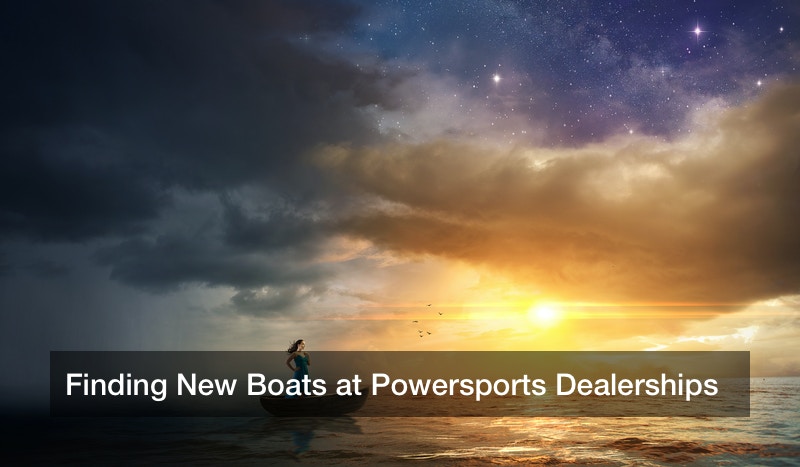
Humanity has long since had a strong affinity for water, even though the human race is not naturally aquatic. Since the dawn of civilization, and long before that too, people have built boats out of wood and bone to explore, trade, go fishing, hunt seals, and more. In the modern age, the average American is not conducting trade or hunting seals, but instead, they are having a good time driving around speed boats and pontoon boats at the local lake or ocean shore. Americans love boats, and the industry is stronger than ever. Visiting local Powersports dealerships is one way to find a boat for sale, and private boat dealers can offer some attractive models, too. Private sellers are also known to offer used boats for sale, sometimes selling older models that may not be available at Powersports dealerships.
Americans and Boating
A number of studies and surveys show just how much Americans like to go boating, whether they rent or buy speed boats and power boats for fun out on the lake. It should also be mentioned that 95% of all boats sold in the U.S. are domestically built, and come in a variety of brands at Powersports dealerships and other retailers. Overall, the recreational boating industry has a yearly economic impact of $121.5 billion or so, which includes direct, indirect, and induced spending of all kinds. This also supports around 650,000 direct and indirect jobs, such as staff at Powersports dealerships or boat manufactures, and around 35,000 small businesses are involved in recreational boating some way or another. Also, just for reference, yearly spending on boats, marine products, and related services increased 3% in 2016 to reach impressive total of $37 billion, and experts once predicted that this would continue through 2018. And the numbers might be even higher now in 2020.
Who is buying these boats, and where do they live? That’s the good news: this industry’s support is broad. Around 95% of all Americans live within an hour’s drive to a body of water friendly for boats, from California to Missouri and Illinois to Florida and New England. Boat owners tend to be middle-aged homeowners who can afford to buy boats, though just about anyone can rent them for a fair price at a marina. Now, how to buy one? Is new or used better?
Purchasing a Boat
When visiting Powersports dealerships or other outdoor retail outlets, a buyer should know the perks of choosing new vs used. A new boat, such as a speed boat or pontoon boat, will cost more than used boats, but these boats will come with factory warranties in case anything goes wrong. What is more, a new boat will have cutting-edge features, safety standards, electronics, fuel efficiency, and power, which is attractive to many buyers. New boats are also in prime condition and have no wear and tear. So, a buyer who can afford this may look into financing options at the dealer, and it helps to have a good credit score, too. Typically, boats come as a package deal with their trailers, so the buyer can hitch that trailer to their vehicle and haul it away. Those trailers are also used to ease a boat into water from a lake shore.
Used boats are another strong option, whether or not the buyer can afford a new one, since used boats are often found for steeply discounted priced. Both professional retailers and private sellers alike may offer these used boats, though buyers are urged to look over a used boat before committing to it. In person, the buyer can and should check the boat’s hull for cracks or holes, and look over its electronics and the surfaces of its seats, not to mention the floor carpeting. It also helps to take that used boat for a test drive to assess the engine’s condition. If the boat’s price is fair and the vehicle’s outstanding repair needs are minimal, then that vehicle may make for a good buy.
Once purchased, a used boat may undergo any number of changes, from updating the seat upholstery to tearing up the old boat carpet and replacing it with new carpeting, courtesy of a marine supply store. The boat might be repainted and renamed, too, for aesthetics.
